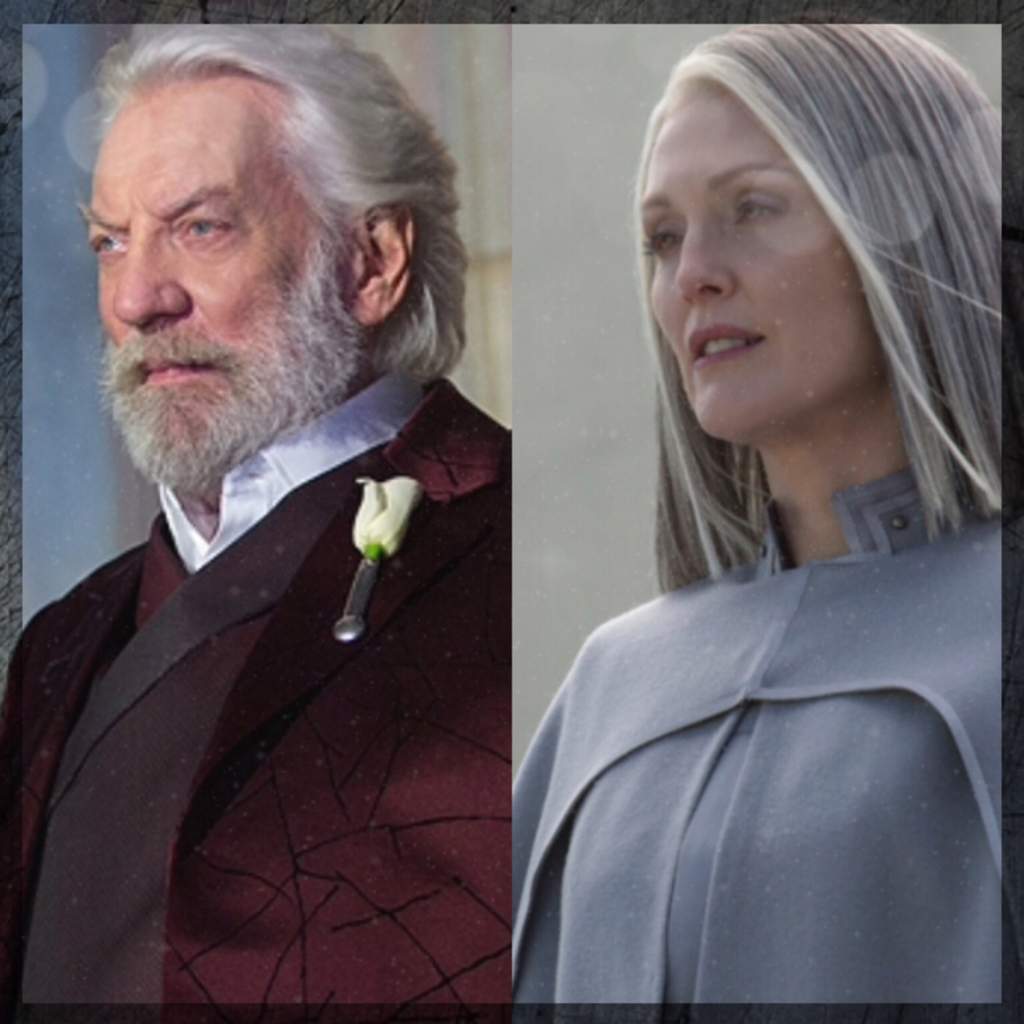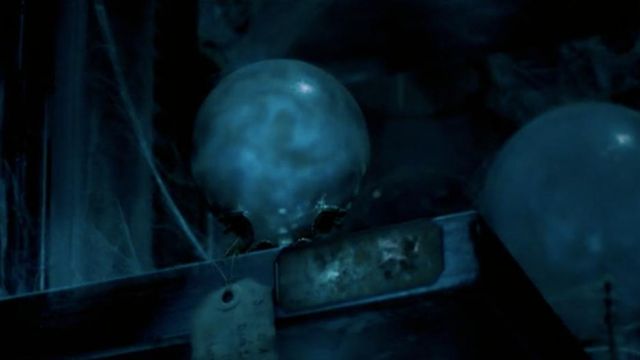"Because something is significantly wrong with a creature that sacrifices its children's lives to settle its differences. [...] But in the end, who does it benefit? No one. The truth is it benefits no one to live in a world where these things happen."
When I first read this line in the Hunger Games series (I can't remember which book) I thought that it was a very nice, true, and insightful quote. I instantly put it amongst my favorites, but it wasn't until a few years later that I developed a deeper connection with it and got to fully understand its weight. Furthermore, as the years pass, this quote becomes more and more personal for me and, as experiences gather, it affects me more and more. This quote describes Katniss' thoughts about the Hunger Games, Snow's regime, and the circumstances of her world in general. Aside from it being a commentary about her world, it can also be applied to our real world as well, which is something that always makes a quote all the more impactful.
I remember a few years back (after I had read the books) - when the war in Syria was the first thing we would see on the news - seeing images of horror, images of injured, lost, and dead children dying in the streets or being washed ashore, and I was devastated. One of the first things that came to my mind was this particular quote. More recently, with the war that is still going on in Ukraine, the same words came to my mind... "Something is significantly wrong with a creature that sacrifices its children-". It is so painfully true and it not only describes the horrors of war but also talks about human nature and one of its core characteristics; its destructiveness and its tendency to self-destruct.
This takes me straight to the next quote from the same series...
"But collective thinking is usually short-lived. We are fickle, stupid beings with poor memories and a great gift for self-destruction."
The more I think about it, the more I can see and safely say that Suzanne Collins has a very good grasp on some notions (among which are: war, peace, human nature, trauma, and PTSD) and she is extremely talented in articulating them beautifully.
Having gone through a couple of significant events of our time myself (a pandemic, an economic crisis, etc) and with the terrifying prospect of a war happening very close to me within my lifetime, makes me understand and appreciate the truth of this quote to its full extent. Now more than ever before I can see and experience that humans are indeed beings with very poor memories that tend to forget the past and not learn from their history and their mistakes which is part of the reason why on many occasions we may circle back to similar conditions that we considered to be over for good, or why we may circle back to unworthy leaders/representatives.
This can be seen in the Hunger Games as well - more specifically in Mockingjay - when, after everything the people from the districts have been through because of The Hunger Games, many of them are ready to vote on having a new kind of Hunger Games perpetuating the suffering. They set all of their faith in Coin, believing and hoping that she'd be their savior and they were prepared to follow her to unreasonable lengths. Maybe it was their devotion to her, or maybe it was their thirst for revenge, or maybe a combination of both. Whichever the case, they ended up circling back to a very wrong situation and an equally bad leader and many of them were blind to it, forgetting what and who it was that had brought them there.
Collective thinking and action are indeed short-lived and they only last as long as a specific goal or person is there to unite the people, but when this goal is achieved or gone, or when things change in general, then the people that were so far gathered and strong together, scatter like mice, their power scattering with along with their conflicting interests. Whichever the reason may be that makes collective thinking so short-lived, the fact remains that people don't realize (or forget) how very strong they can be when they become a team and act in an organized way, instead of when they remain and act as units. Making any kind of significant change requires the strength and determination of the many when they gather and unite. Big changes rarely ever come from a single person, no matter how valiantly they may battle for it. It's troubling how often and how much we seem to forget that an existing system or regime is only as strong/weak as the people keeping it in power. And oftentimes when people are not what keeps the system/regime in power, then whatever else it is that's keeping it there - whether that is money, connections, or anything else - is not enough and it usually is a pretty fragile system which will eventually and inevitably crumble...
This, in continuation, brings me to the next quote...
"It must be a fragile system if it can be brought down by just a few berries."
This quote is very particular to the Hunger Games, yet, if taken metaphorically it can apply to our lives and real situations easily. We all live within particular political systems and no matter what they are like, they can be stronger or weaker structures. Systems that don't draw their strength from the people, or that don't listen to their wants and needs, systems that derive power from other sources tend to lean more on the fragile side rather than the solid-steady one and they can usually be brought down by something rather small and insignificant like a handful of berries.
The quote is not only about the Hunger Games in particular or about the berries per se. It's about the nerve of one person to go against the stream, and about the courage of the first few people that decided to rise on their feet and stand together against a dictatorship. These few small berries are the depiction, the very essence of the few small and seemingly insignificant people gathering and finally using their most powerful weapon: their voice. These berries also symbolize the seemingly small causations that can set off a big change. It was something as small as a few berries, or a three-finger salute that woke everyone up and made them start rising up against Snow's oppression and the more Snow fought against it, the closer he got to his own end.
This is part of the reason why such authoritarian regimes can never last long, they will eventually be overturned by the very people they oppress. There can be a few reasons that a system may be fragile, and one of them - and a rather important reason too - is contained in the following quote, this one not from the Hunger Games...
"Voldemort himself created his worst enemy, just as tyrants everywhere do. Have you any idea how much tyrants fear the people they oppress? All of them realize that one day, amongst their many victims, there is sure to be one who rises against them and strikes back."
This one is from the Harry Potter books, obviously, and it is one of my favorites from all the books in the series. It is undeniably true that tyrants, through their merciless and oppressive ruling usually create their own worst enemies who are usually none other than the very people they oppress. It doesn't take long for people to realize what their rulers are and, even though it may be hard and dangerous for them to react at first, it's inevitable that they will eventually retaliate.
And even though tyrants acknowledge this, it doesn't really help them, because it makes them want to prove it wrong, to prevent such retaliation from happening. And in trying to suppress all uprisings and reactions from the people they end up oppressing them even more, which in turn makes the people even more frustrated and reactive.
Similarly, Voldemort created his own worst enemy simply by trying to extinguish him before he would even have the chance to threaten him. He picked the baby himself, based on nothing more than an obscure prophecy, which he chose to interpret in his own manner.
Even though Harry wasn't the only option, Voldemort picked him and tried to kill him, and, as we know he failed. As a result, he became obsessed with Harry who was but a child/teenager, and kept persecuting him and trying to destroy him for the rest of his life. He could not understand that his obsession would be his downfall and he failed to realize that the more he struggled to extinguish his worst enemy, the more he would set himself up for failure and the closer that would bring him to his own death. Someone could argue that it was Harry who brought down Voldemort, but, in reality, it was Voldemort himself; he picked the baby, he attacked him and he was the one who kept chasing him until this was the end of him. What's more, Voldemort whom everyone feared, whose name wasn't even spoken aloud, spent the remainder of his existence in fear; always in fear of this one boy, always scared that even more people may try to step up against him.







